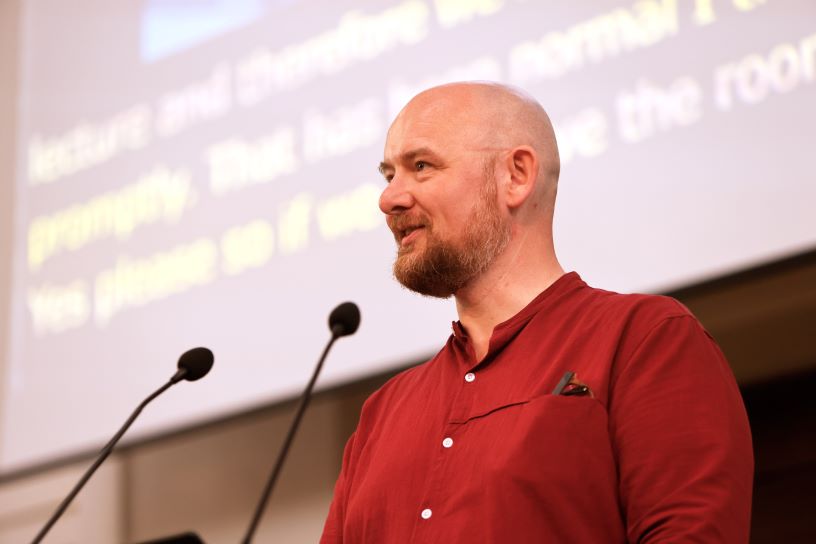Swarthmore Lecture: the challenge of doing justice
Quakers should renew their efforts in the field of penal reform, Ben Jarman said at this year's Swarthmore Lecture on 27 July.

He pointed to the exclusion faced by people who have served long sentences for serious offences, and suggested there is more Quakers can do.
Jarman, who has worked in and around prisons since 2010, said his presence at Fishmongers' Hall in 2019 when Usman Khan murdered two people had led him to re-examine his views on criminal justice.
Punishment and rehabilitation were important, but not opposites, Jarman said. Beyond these aims, he suggested, there was a central need for people convicted of serious crimes to find belonging after punishment.
Quakers have a role to play in making this possible, Jarman said.
Jarman's PhD research, part-funded by a Quakers in Britain Adult Education grant, focused on the experiences of men serving life sentences for murder in English prisons.
He is now based at the World Prisons Research Programme at Birkbeck, University of London.
Jarman took part in the Cambridge University Learning Together programme, where students from Cambridge attended lectures and seminars in prison, alongside students from the prison.
It was at an event to celebrate five years of the programme that Usman Khan, a former prison student, killed Saskia Jones and Jack Merritt, a friend of Jarman's.
“This kind of violence is world-ending," Jarman said. “Nothing could have prepared me for it. The losses have always seemed indescribable.
“Within them, though, there have been gifts, opportunities, and consolations: the kind we find by encountering life not in a mediated way, not through news reports or statistics or abstractions, but up close."
Anger and the meaning of vengeance
The lecture reflected on anger and the meaning of vengeance and suggested that it was not wrong to feel anger following acts of violence.
But it suggested survivors of violence might need to escape a sense of victimhood, as much as to see retaliation against those responsible.
Both survivors and those responsible for violence needed time, distance, and a sense of safety to rebuild, Jarman added.
While prisons and other public protection measures had a role to play in this context, Jarman said, where they created permanent exclusion, they should be challenged.
Quaker history offers varied, sometimes conflicting guides for contemporary action, he said, and paying close attention to individual cases by 'getting close' is vital.
The annual Swarthmore Lecture is organised and funded by Quaker learning and research organisation, Woodbrooke.
Government plans unclear
Jarman's lecture coincides with the new Labour government taking emergency measures to relieve the crisis caused by prisons running out of space, but longer-term plans remain unclear.
Quakers in Criminal Justice has welcomed the appointment of businessman James Timpson as Minister for Prisons and Probation.
But in a recent statement they warned: “Reversing decades of neglect will not be easy."
Around 10 per cent of Timpson's workforce are former prisoners.
Jarman suggested Quakers could follow Timpson's example and find out if their organisations offered equitable employment access to the 12 million UK residents with a criminal record.